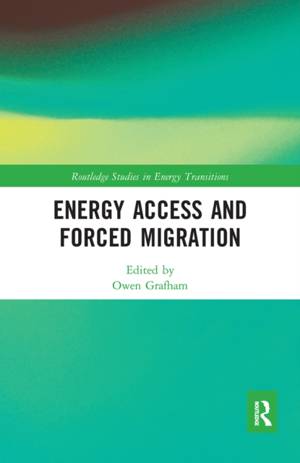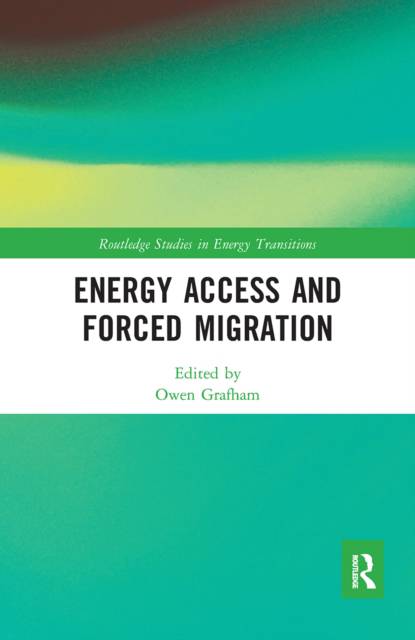
- Retrait gratuit dans votre magasin Club
- 7.000.000 titres dans notre catalogue
- Payer en toute sécurité
- Toujours un magasin près de chez vous
- Retrait gratuit dans votre magasin Club
- 7.000.0000 titres dans notre catalogue
- Payer en toute sécurité
- Toujours un magasin près de chez vous
Energy Access and Forced Migration
Description
This edited collection brings together a selection of expert authors and draws on a wide range of case studies, geographies, and perspectives to explore the links between forced migration and energy access.
This book addresses the paucity of academic study on how energy is delivered to the millions of people currently forcibly displaced. The contributions throughout assess the current energy governance regimes, models of delivery, and innovative solutions that are dictating how energy is - and can be - provided to those who have been forced to move away from their homes. By bringing together author-teams of practitioners, academics, businesses, and policy makers, this collection encourages interdisciplinary dialogue about the best way of approaching energy provision for the forcibly displaced.
This book will be of great interest to students and scholars of energy access and policy, environmental justice and equity, and migration and refugee studies.
Spécifications
Parties prenantes
- Editeur:
Contenu
- Nombre de pages :
- 208
- Langue:
- Anglais
- Collection :
Caractéristiques
- EAN:
- 9781032082134
- Date de parution :
- 02-08-21
- Format:
- Livre broché
- Format numérique:
- Trade paperback (VS)
- Dimensions :
- 156 mm x 234 mm
- Poids :
- 299 g

Les avis
Nous publions uniquement les avis qui respectent les conditions requises. Consultez nos conditions pour les avis.





